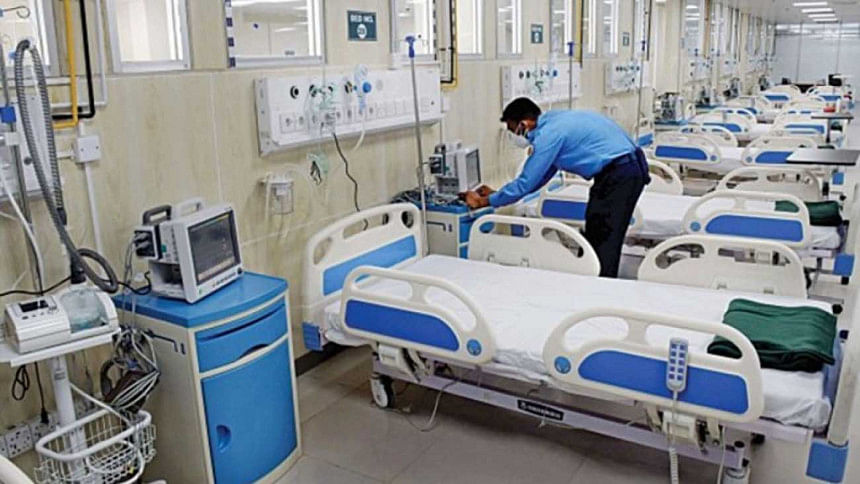‘Hospitals need to come under contingency plans to face disasters’

All hospitals of the country are needed to come under contingency plans to face disaster like earthquake properly, said speakers at a webinar on Tuesday.
"Hospital is a very sensitive place as vulnerable people stay there for which disaster management preparedness for hospitals is very important," said Nazmun Nahar, deputy director, humanitarian, Save the Children in Bangladesh at the webinar organised by The Daily Star.
The webinar titled "Paving Resilience through City Governance" was hosted by The Daily Star. Plan International Bangladesh organised the program while it was implemented by Population Services and Training Centre (PSTC) partnered with Save the Children Bangladesh.
The Project "Strengthening institutional systems and governance mechanisms for improved earthquake preparedness and disaster response" was funded by: European Union Civil Protection and Humanitarian Aid (ECHO).
Nazmun Nahar said five hospitals in Dhaka and one hospital in Narayanganj were under contingency planning but this plan should be done for all the hospitals in line with the national policy.
As per the contingency plan, resource management and mock drills are very important and they have to be done at certain intervals, she said.
Rezaul Karim, disaster risk management (DRM) specialist, said the hospital disaster management plan and hospital disaster guideline were prepared in 2009 and the government had prepared a contingency plan for nine medical college hospitals in the country after that.
He said the government as per the instruction of the Prime Minister is now going to prepare an emergency management guideline considering the current Covid-19 pandemic and the government will start its work within the next one or two months.
Stressing the need for giving more attention on risk reduction and contingency plan for disasters like earthquake Manik Kumar Saha, acting Dhaka and country portfolio manager Plan International Bangladesh said though Bangladesh is called champion globally in disaster management but that is mostly the case for disasters like floods and cyclone.
"When it comes to the matter of urban disasters like fires or chemical pollution or earthquakes Bangladesh is far behind," he said.
Giving emphasis on inter-agency coordination Manik said there are 42 to 45 government organisations involved with service providing works but there is a gap among them in providing the services.
Strengthening the need for implementation of policy Mrium Nesa of Action Aid Bangladesh said there are many policies in the country but work is needed for proper implementation.
The webinar was divided into three sessions where Yasna Rahman, project manager of Plan International Bangladesh and Shahnawaz Whara, manager-coordination Urban Resilience Project, Save the Children in Bangladesh moderated the sessions among others.
Dr Mahbubul Alam, population Services and Training Centre, Prof Shuchita Sharmin, Prof Mahbuba Nasrin, Mostafizur Rahman, humanitarian and Resilience manager of Plan International Bangladesh and Shuvashish Roy of The Daily Star also addressed the programme.

 For all latest news, follow The Daily Star's Google News channel.
For all latest news, follow The Daily Star's Google News channel. 



Comments